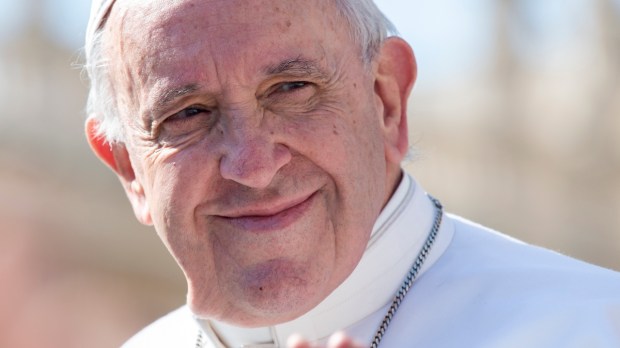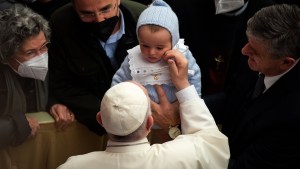Earlier this month, an American Jesuit priest who ministers to LGBTQ+ Catholics asked Pope Francis three simple questions.
Fr. James Martin sent the Pope a note in Spanish, inviting him to answer the questions as briefly as he wished.
The Holy Father responded with a handwritten note, which Fr. Martin has shared on the website Outreach.
Fr. Martin asked the Pope what he thought people who identify as LGBTQ+ should know about God and the Church, and how they should respond to feeling rejected by the Church.
The Holy Father’s answers are transcribed at the web site in the original Spanish, and with this English translation:
~
Dear brother,
Thank you for your letter.
With respect to your questions, a very simple response occurs to me.
- God is Father and he does not disown any of his children. And “the style” of God is “closeness, mercy and tenderness.” In this way (or along this path) you will find God.
- I would like for them to read the book of the Acts of the Apostles. There they will find the image of the living church.
- I would have them recognize it not as the “rejection of the church,” but instead “of people in the church.” The church is mother and calls together all of her children. Take for example the parable of those invited to the feast: “the just, the sinners, the rich and the poor, etc.” A “selective” church, one of “pure blood,” is not the Holy Mother Church, but rather a sect.
Thank you for everything you do. I pray for you, please do so for me.
May Jesus bless you and may the Holy Virgin guard you.
Fraternally,
Francis
Synod reaches out
On Saturday, the newsletter from the Vatican office preparing the synod on synodality addressed the “synodal journey” of those who define themselves in the LGBTQ+ categories.
“No one can be considered an ‘other’ in the church, no matter who they are,” the letter emphasized, in considering our call to be “in and not of the world.”
The letter continues to consider two worldly ways to look at relationships, at “others” – a political way, which sees the other in opposition to me, or an economic way, which sees the other as a potential service to me. The Church’s way, though, is the way of hospitality, which sees the other in terms of gift.
We see this in so many of Jesus’ parables, where he reaches out to those on the margins, always welcoming them into the community.



